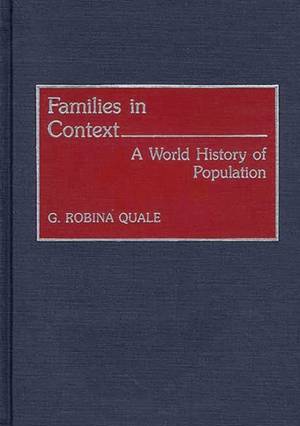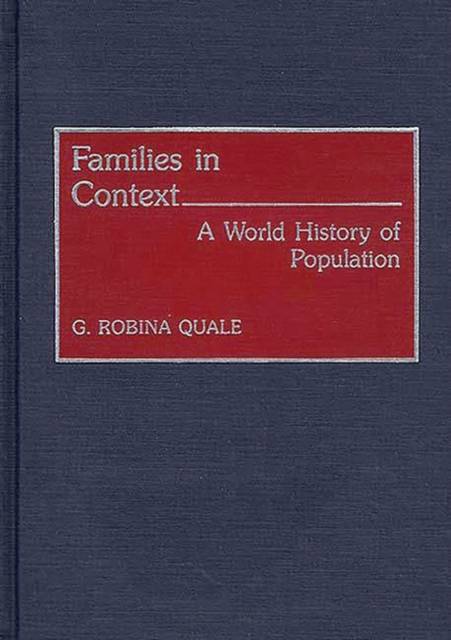
- Retrait gratuit dans votre magasin Club
- 7.000.000 titres dans notre catalogue
- Payer en toute sécurité
- Toujours un magasin près de chez vous
- Retrait gratuit dans votre magasin Club
- 7.000.000 titres dans notre catalogue
- Payer en toute sécurité
- Toujours un magasin près de chez vous
Description
Continuing a series of explorations of aspects of family life begun in A History of Marriage Systems (GP, 1988), G. Robina Quale provides a comprehensive overview of the basic forms of interaction between the family and the societal macrocosm, as both interact with disease, available resources, and current technologies. Since the beginning of human society, Quale says, forager bands and, later, family households have striven to meet the group's basic needs by maintaining a ratio of 3 active members to 2 members who need care because of immaturity, a handicap, or frailty. The book describes the way in which households have tried to reach the favorable 3:2 ratio in different areas and periods of history, factoring in the technological and environmental constraints and health hazards inherent in those areas and periods.
The broad periods considered include forager and preurban agricultural life, the period of regional cities and peasantry from about 3500 B.C. to A.D. 1500, and, since 1500, the age of world cities, which grew out of the increasing commercialization and demographic expansion of regional cities. Quale describes how in recent times economic diversification, fertility reduction, education, social welfare services, and pension plans have joined bilaterality, equally divided inheritance, nuclear households, mid-twenties marriage, and partner self-selection in modern life in Europe and its overseas offshoots. These patterns are being adapted by other societies as they also diversify economically. Yet economic diversification, with all its benefits, also presents problems such as the overuse of environmental resources and the incidence of pollution-caused disease. This volume will be of interest to those concerned with family studies and family history, global environmental history, and the history of disease, as well as those concerned with demographic history.Spécifications
Parties prenantes
- Auteur(s) :
- Editeur:
Contenu
- Nombre de pages :
- 480
- Langue:
- Anglais
- Collection :
Caractéristiques
- EAN:
- 9780313278303
- Date de parution :
- 30-06-92
- Format:
- Livre relié
- Format numérique:
- Genaaid
- Dimensions :
- 156 mm x 234 mm
- Poids :
- 848 g







